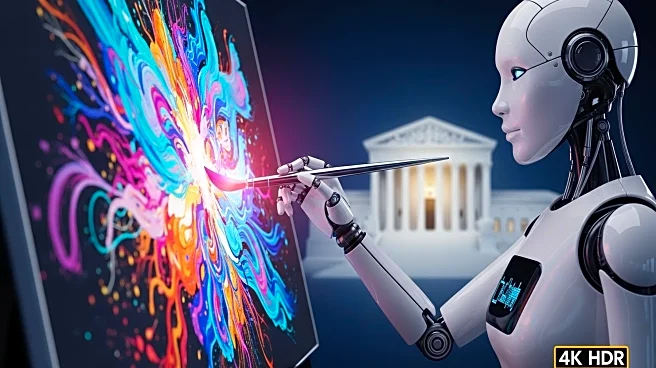What's Happening?
Computer scientist Stephen Thaler has petitioned the US Supreme Court to recognize works created by AI systems as eligible for copyright protection. Thaler argues that his AI system, the 'Creativity Machine,' should be considered the author of a work titled 'A Recent Entrance to Paradise.' The US Copyright Office previously denied registration for the work, citing the lack of human authorship. Thaler's petition challenges this decision, claiming that the Copyright Office has overstepped its authority by imposing a human authorship requirement not explicitly stated in copyright law. Lower courts have upheld the Copyright Office's stance, emphasizing that the Copyright Act of 1976 implies humanity as a necessary condition for authorship.
Why It's Important?
The case raises significant questions about the intersection of technology and intellectual property law. If the Supreme Court rules in favor of Thaler, it could set a precedent for AI-generated works to be recognized as copyrightable, potentially transforming the landscape of creative industries. This could impact artists, authors, and companies that utilize AI in content creation, as it would redefine the concept of authorship and ownership in the digital age. The decision could also influence the US's position in global AI innovation and intellectual property rights.
What's Next?
The Supreme Court's decision on whether to hear the case will be a critical next step. If accepted, the case could lead to a landmark ruling that may redefine copyright law. Stakeholders in the creative and tech industries are likely to closely monitor the proceedings, as the outcome could have far-reaching implications for AI development and intellectual property rights.
Beyond the Headlines
The ethical implications of AI authorship are profound, as they challenge traditional notions of creativity and ownership. The case could spark broader debates about the role of AI in society and the potential need for new legal frameworks to address emerging technologies.









